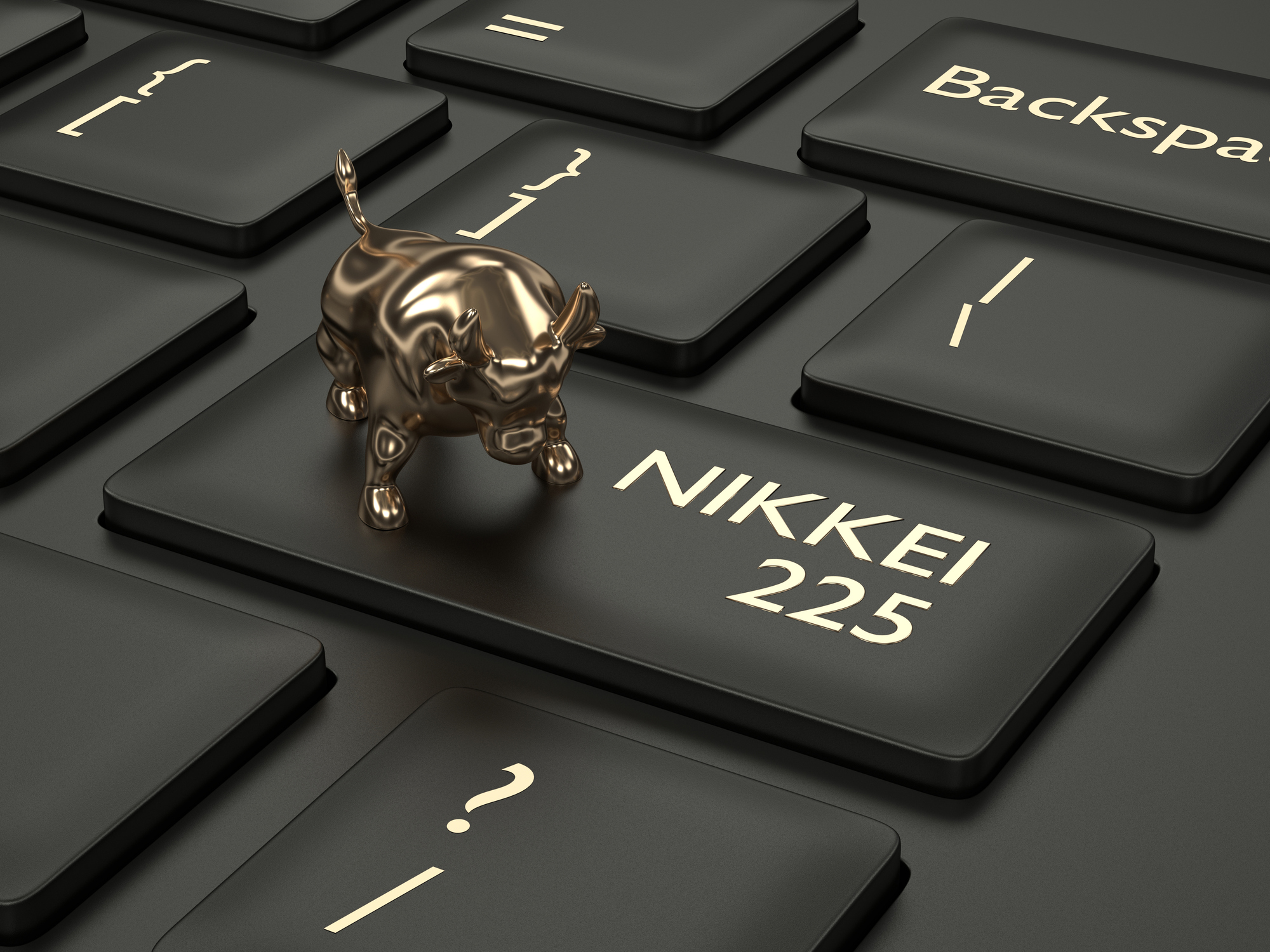What is the Nikkei 225 and how can you trade in it?
The Nikkei 225 is Japan’s major stock market index.


Get the latest financial news, insights and expert analysis from our award-winning MoneyWeek team, to help you understand what really matters when it comes to your finances.
You are now subscribed
Your newsletter sign-up was successful
Want to add more newsletters?

Twice daily
MoneyWeek
Get the latest financial news, insights and expert analysis from our award-winning MoneyWeek team, to help you understand what really matters when it comes to your finances.

Four times a week
Look After My Bills
Sign up to our free money-saving newsletter, filled with the latest news and expert advice to help you find the best tips and deals for managing your bills. Start saving today!
The Nikkei 225 is the top stock market index for the Tokyo Stock Exchange. Often referred to as the 'Nikkei Stock Average' or just the 'Nikkei', it consists of the top 225 blue chip companies in Japan listed on the Tokyo Stock Exchange.
Some of the biggest components of the Nikkei include companies within electric machinery, chemicals, services and tech. Most of the companies on the index are major exporters, so the market is not only highly sensitive to the global business cycle but also to the level of the yen. Recent fears of a US recession caused Japan's stock market crash which saw the Nikkei sink by 12% at the start of August.
We look at what the Nikkei 225 is and how you can trade in it.
MoneyWeek
Subscribe to MoneyWeek today and get your first six magazine issues absolutely FREE

Sign up to Money Morning
Don't miss the latest investment and personal finances news, market analysis, plus money-saving tips with our free twice-daily newsletter
Don't miss the latest investment and personal finances news, market analysis, plus money-saving tips with our free twice-daily newsletter
What companies are on the Nikkei 225?
The Nikkei consists of 225 top companies that trade on the Tokyo Stock Exchange, many of which are global brands.
It is a price-weighted index. Some of the top companies on the Nikkei include the likes of Sony, Canon, Nissan and Toyota.
The stocks that make the list are reviewed in April and October each year. The first calculation took place in September 1950. The index represents the history of the Japanese economy following World War II.
The index consists of around 35 sectors, with tech being the largest, making up almost 50%. Other industries include financials, consumer goods, material, capital goods, transportation and utilities.
The top 10 companies include:
- Fast Retailing
- Tokyo Electron
- Softbank Group Corp
- Shin-Etsu Chemical
- TDK Corp
- KDDI
- Recruit Holdings
- Fanuc
- Daikin Industries
The price of the Nikkei 225 is affected by share prices of the companies in the index. A wobble in any given sector, like tech, will impact the price of the Nikkei.
The Nikkei is therefore also sensitive to economic events such as recent interest rate changes, currency rates, earnings reports and even natural disasters which can impact companies listed in the Nikkei.
How can you trade the Nikkei 225?
Trading in the Nikkei gives you exposure to the Japanese market. You can buy individual shares via your broker or track the index by investing in a tracker fund or an exchange-traded fund (ETF).
When is the Japanese stock market open?
The Japanese stock market is open between 9am to 3pm JST - Monday to Friday. The Tokyo Stock Exchange, the main stock market of Japan, is based in Tokyo and is often abbreviated as TOSHO.
Get the latest financial news, insights and expert analysis from our award-winning MoneyWeek team, to help you understand what really matters when it comes to your finances.
Kalpana is an award-winning journalist with extensive experience in financial journalism. She is also the author of Invest Now: The Simple Guide to Boosting Your Finances (Heligo) and children's money book Get to Know Money (DK Books).
Her work includes writing for a number of media outlets, from national papers, magazines to books.
She has written for national papers and well-known women’s lifestyle and luxury titles. She was finance editor for Cosmopolitan, Good Housekeeping, Red and Prima.
She started her career at the Financial Times group, covering pensions and investments.
As a money expert, Kalpana is a regular guest on TV and radio – appearances include BBC One’s Morning Live, ITV’s Eat Well, Save Well, Sky News and more. She was also the resident money expert for the BBC Money 101 podcast .
Kalpana writes a monthly money column for Ideal Home and a weekly one for Woman magazine, alongside a monthly 'Ask Kalpana' column for Woman magazine.
Kalpana also often speaks at events. She is passionate about helping people be better with their money; her particular passion is to educate more people about getting started with investing the right way and promoting financial education.
-
 Should you buy an active ETF?
Should you buy an active ETF?ETFs are often mischaracterised as passive products, but they can be a convenient way to add active management to your portfolio
-
 Power up your pension before 5 April – easy ways to save before the tax year end
Power up your pension before 5 April – easy ways to save before the tax year endWith the end of the tax year looming, pension savers currently have a window to review and maximise what’s going into their retirement funds – we look at how
